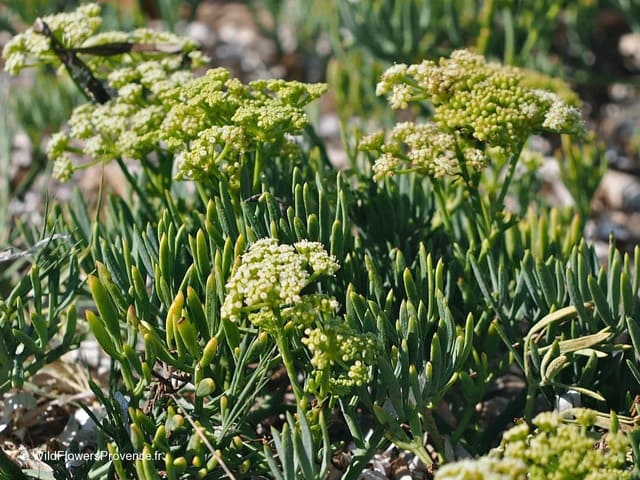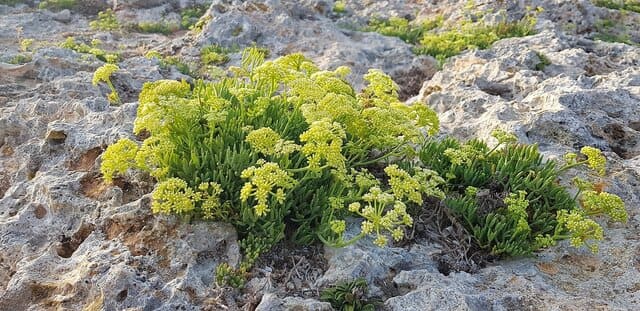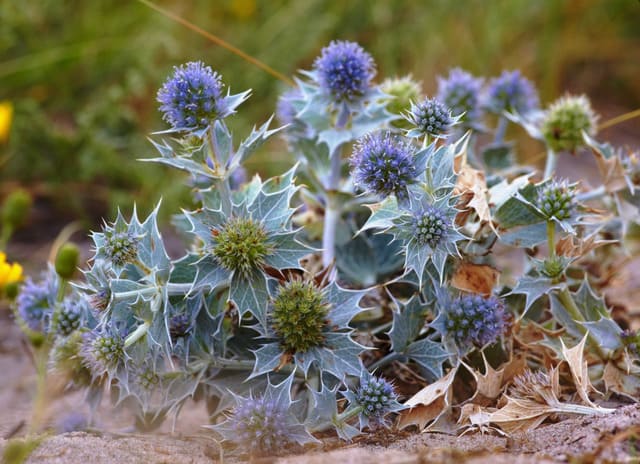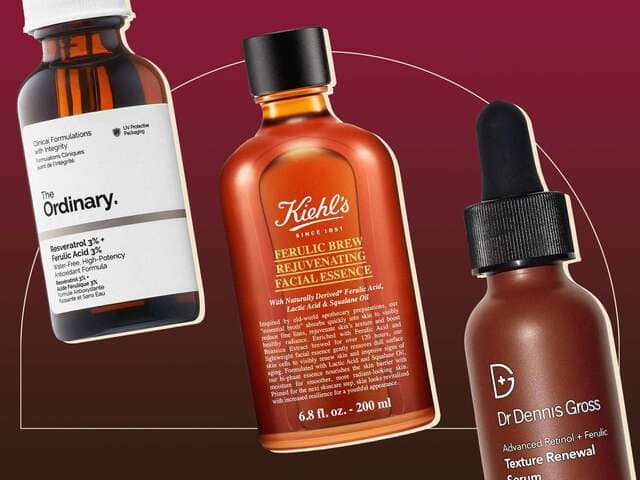Table of Contents
Habitat
Crithmum maritimum, also known as sea fennel or rock samphire, is a perennial halophyte that is commonly found throughout the coastal area of the Mediterranean. It grows in sunny habitats, particularly on rocky shores and beaches. The plant can also be found in coastal regions of Europe, including Britain, extending to the Mediterranean and Black Sea. It typically grows on cliffs and rocks, or more rarely on shingle or sand, by the sea. The plant can grow up to 50cm in height and forms bushy cushions when growing among rocks close to the sea.
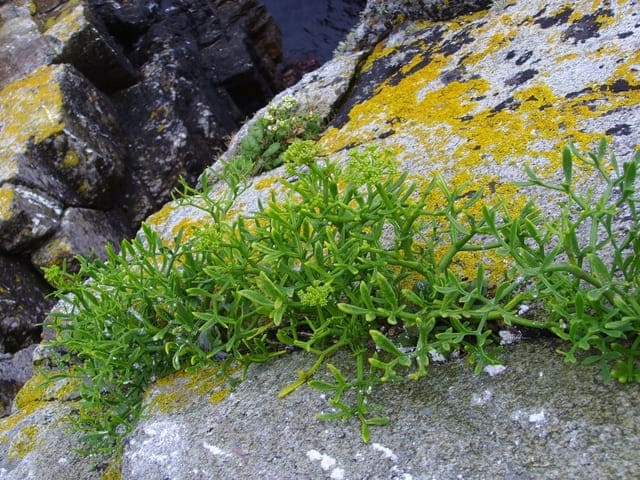
How is Crithmum Maritimum filtrate of callus cultures produced and what parts of the plant are used?
Crithmum Maritimum Filtrate of Callus Cultures, is produced using the callus (tissue culture) of the Crithmum maritimum plant, also known as rock samphire or sea fennel.
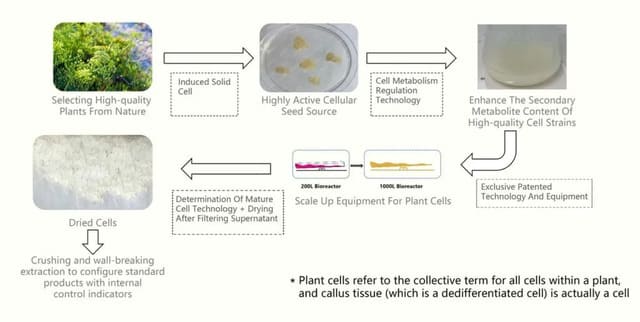
CRITHMUM MARITIMUM FILTRATE OF CALLUS CULTURES
The production process involves the use of plant cell technology. The callus tissue, which is an undifferentiated mass of cells, is cultured under specific conditions to induce the production of the filtrate. This process is a type of biotechnology that allows for the production of plant-derived products in a controlled environment.
The callus tissue used in this process can be obtained from various parts of the plant, including the leaf, flower, seed, or apical meristem. These tissues are placed in a sterile culture medium, which induces the development of callus. Under appropriate conditions, the callus can be induced to generate the filtrate.
Active components in Crithmum Maritimum filtrate of callus cultures
The main active component is the filtrate derived from the callus culture of the Crithmum maritimum plant. This filtrate is known for its skin lightening and wound healing properties.
The filtrate is also rich in various bioactive compounds. While the exact composition can vary depending on the specific production process and the part of the plant used, it typically includes a range of beneficial compounds such as polyphenols, minerals, vitamins, and essential oils.
Polyphenols are a type of antioxidant that can help protect the skin from damage caused by free radicals. They also have anti-inflammatory properties, which can help reduce redness and irritation.
Minerals and vitamins are essential for maintaining healthy skin. They play a crucial role in various skin functions, including cell regeneration, collagen synthesis, and protection against environmental damage.
Essential oils, on the other hand, can provide a range of benefits, including moisturizing the skin, reducing inflammation, and promoting wound healing.
In addition to these components, the filtrate may also contain other beneficial compounds derived from the Crithmum maritimum plant. However, further research is needed to fully understand the composition and benefits of this filtrate.
How is Crithmum Maritimum filtrate of callus cultures used in skincare and cosmetic products?
Skin Lightening and Wound Healing Properties
Crithmum maritimum callus culture filtrate, has been found to have skin lightening properties. It inhibits major steps of the melanogenesis process, which is the process of melanin production. By reducing melanin production, it can help to regulate pigmentation and lighten the skin.
In addition to its skin lightening properties, Crithmum maritimum extract also has wound healing properties. It can stimulate the renewal of the epidermis, reduce inflammation, and stimulate the synthesis of collagen, proteoglycans, and glycosaminoglycans.Collagen is a protein that provides structure to the skin, while proteoglycans and glycosaminoglycans are molecules that help to maintain skin hydration and elasticity. By promoting the synthesis of these molecules, Crithmum maritimum extract can help to improve skin health and appearance.
Antioxidant Activity and Anti-Aging Effects
Crithmum maritimum extract is rich in antioxidants, which can help to protect the skin from damage caused by free radicals. Free radicals are unstable molecules that can cause damage to cells, leading to signs of aging and various health problems. By neutralizing these free radicals, the antioxidants in Crithmum maritimum extract can help to prevent skin damage and maintain skin health.
In addition to its antioxidant activity, Crithmum maritimum extract also has anti-aging effects. It has been found to promote collagen and hyaluronic acid production, which can help to reduce the appearance of fine lines and wrinkles. Furthermore, it can help to improve skin tone and radiance, making the skin look younger and healthier.
Other Benefits and Uses
Crithmum maritimum extract has also been found to have other beneficial effects on the skin. For example, it can help to unclog pores, reduce sebum secretion, and hydrate the skin. These effects can help to prevent acne and other skin problems, and keep the skin looking fresh and healthy.
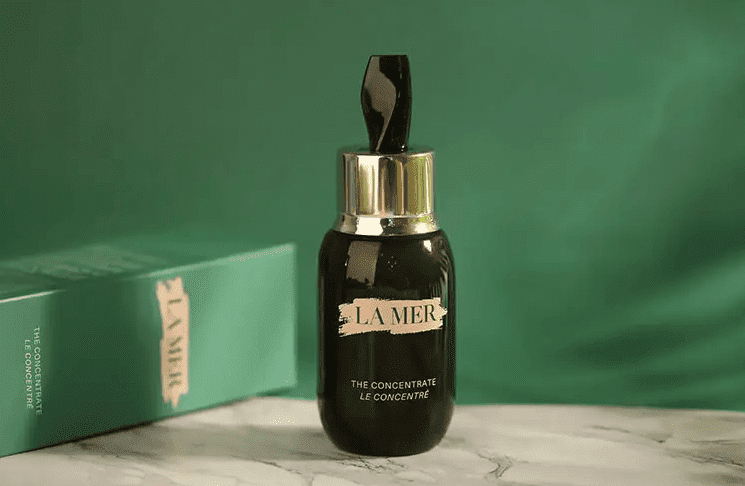

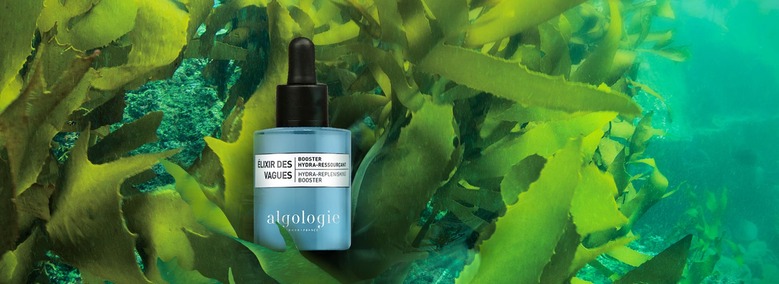
Conclusion
In addition to its use in skincare products, Crithmum maritimum is also used in various food and nutraceutical products due to its rich nutrient content and potential health benefits. It has been used to prepare medicinal juices, salads, soups, and sauces, and has been found to have potential applications in the manufacturing of high-value products such as fermented and unfermented preserves, sauces, powders, spices, herbal infusions and decoctions, and even edible films.
However, the indiscriminate collection of sea fennel from the wild has led to the disappearance of this species from some European habitats. For this reason, in some regions, such as England and the Mt. Conero Natural Park (Marche Region, Central Italy), the plant is now protected, and its harvest from the wild is forbidden.
In conclusion, Crithmum maritimum extract is a natural ingredient with a wide range of beneficial effects on skin health. Its skin lightening, wound healing, antioxidant, and anti-aging properties, along with its other beneficial effects, make it a valuable ingredient in skincare products. Furthermore, its rich nutrient content and potential health benefits also make it a valuable ingredient in food and nutraceutical products.
